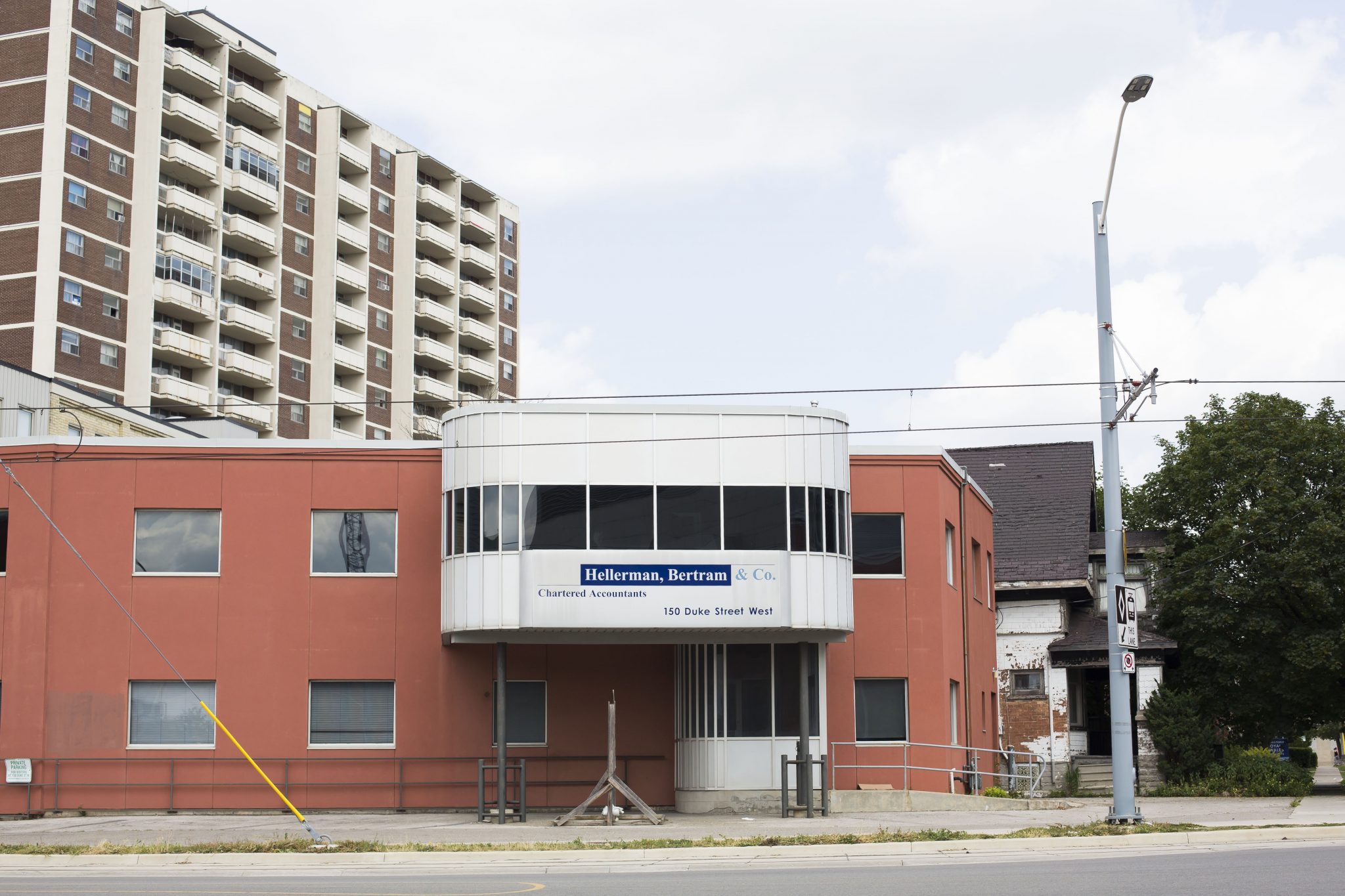This past April, Waterloo Regional Council voted to move forward with the implementation of a consumption and treatment services site (CTS) at 150 Duke St. W in downtown Kitchener.
Full disclosure: I was heavily involved in local advocacy for these sites over the past two years.
The site, which will be co-run by Region of Waterloo Public Health (ROWPH) and Sanguen Health Centre, is expected to open in February 2020. In the meantime, a temporary CTS will be established while staff await provincial approval for the permanent site.
On July 30, The Record reported that the federal government had officially granted approval for both the permanent and interim consumption site
The interim site, which will be at the same location on Duke St., is on track to open in September 2019. It will operate daily from 9 a.m. to 9 p.m. until the permanent site is ready to launch.
“The purpose of the interim site is really to address the need for overdose prevention services and to have those established as soon as possible,” explained Grace Bermingham, manager of harm reduction for Region of Waterloo Public Health.
At a CTS, people can use drugs legally under the supervision of a medical professional who can intervene if anything goes wrong. These sites also offer services including primary healthcare, counselling, addiction treatment and employment and income support.
“The plan is absolutely to be able to provide as much service on site as we can,” said Violet Umanetz, manager of outreach (education and prevention) for Sanguen Health Centre.
“We need to streamline everything between agencies to make sure that if someone shows up on a Monday and they want a particular service, we can just streamline them right into it without it being a waiting list.”
Umanetz said that that the goal is to offer a really warm referral, as opposed to just handing someone a business card with a phone number on it.
“[Instead of] ‘Call this number when you have time,’ it’s literally, ‘Let’s make this phone call now, let’s walk over there now — let’s go make this happen,’” she said.
Many residents have voiced concerns about the effect a CTS may have on the community, something that Bermingham and Umanetz take very seriously.
“We’ve talked a lot about how to mitigate any concerns that might come up with respect to activity surrounding the site … balancing the needs of the clients and making sure that we are being respectful of the surrounding neighbourhood,” said Bermingham.
Part of their strategy will be to form a committee with representatives from the Neighbourhood Association, the Business Improvement Area, Waterloo Regional Police, and people with lived experience of substance use.
“The Community Advisory Group will have a really important role in that they will advise on a number of different topics that are associated with the site, and so there will be some consultation around community engagement,” Bermingham explained.
“How do we do that in a transparent and respectful manner and how do we make sure and provide pathways so that people who are looking to get information about the site in an ongoing way have a way to do that?”
Waterloo Regional Police Service (WRPS) has been an active partner throughout the process and will continue to play an integral role, assessing any impact the site may have on crime and public disorder.
“The public safety, security, and well-being of all residents within Waterloo Region are a top priority for the WRPS,” said Inspector Mark Crowell in an e-mail statement. “While WRPS does not condone illegal drug use, we have a responsibility to preserve life.”
Umanetz is confident that staff will be able to handle any problems that may arise.
“We want to have things as prepared ahead of time as best we can — be really proactive in this,” she said. “But then we’ll also be strongly and quickly reactive if there are issues because we want to be good neighbours.”
“I think that there’s this perception out in the community that it’s just going to be a free-for-all [sic] and we’re going to make the neighbourhood unsafe,” she said.
Umanetz said that the reality is they’re going to have people in the neighbourhood who will volunteer at the site and people who live in the neighbourhood coming to the site.
“I think people forget that you can be very pro-harm reduction, you can absolutely love the hell out of people who use drugs, and you can also care about your kids and your community because these are not mutually exclusive things,” she said.
With 46 deaths in the Region within the first seven months of this year, the opening of a CTS could not come sooner.
“The last five years have been terrible,” said Umanetz. “We’ve had so many people die, we’ve had so many people become disconnected, we’ve had so many people marginalized, isolated, shoved out — and we need to stop that and then we need to reverse the trends.”
Umanetz hopes that a CTS will improve not just the lives of people who use drugs, but the entire community.
“What I want to hear from people in the community at large is: this is not a big deal … maybe I still don’t love that it exists but it hasn’t impacted me negatively at all and it’s maybe made a difference in how I perceive my community,” she said. “I want Waterloo Region as a whole to actually be a place that understands drug use.”
Umanetz said that even if only one person walks through the door and feels accepted and safe at the site, and that person stays alive because of their visit, then the site has been successful.
“And that goal of saving lives — yes, absolutely,” she said, “but wouldn’t it be great if people who are using drugs didn’t feel like shit about themselves all the time?”




Leave a Reply